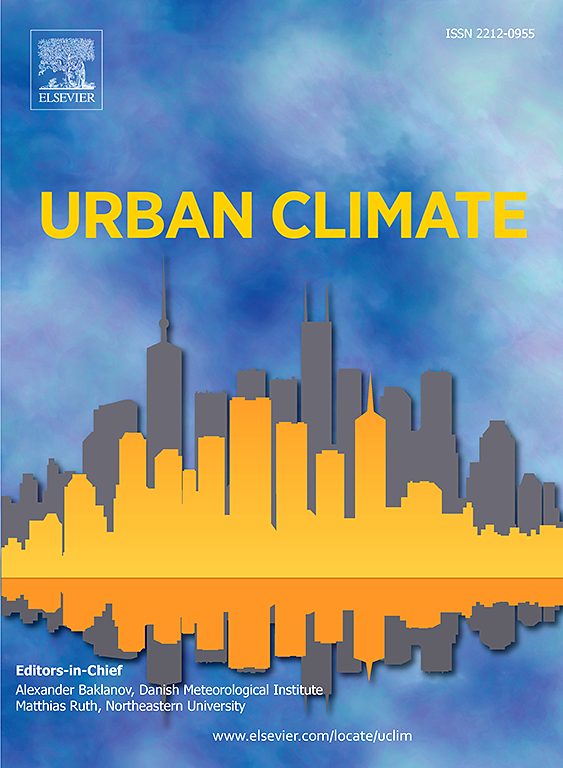以健康为中心的气候适应:来自澳大利亚西悉尼地方政府的见解
IF 6.9
2区 工程技术
Q1 ENVIRONMENTAL SCIENCES
引用次数: 0
摘要
气候变化对人类健康构成明显和日益严重的威胁。虽然地方政府被广泛认为是负责适应气候变化的关键级别政府,但它们在有效解决这一关键问题方面面临着挑战。这项研究的重点是西悉尼,这是澳大利亚一个快速发展的城市地区,经常受到极端天气事件的影响。我们进行了利益相关者访谈和文件分析,使用适应性能力框架来确定在整个地区实施气候和健康相关战略的障碍和推动因素。确定了一系列障碍,包括空间上的近距障碍和当代障碍,以及与遗产相关的远程障碍。报告的中心结论是,迫切需要加强机构内部和机构之间以及机构与所服务的社区之间的合作,以克服适应障碍并实施解决方案。人们认为,这种合作对于解决当前的许多紧迫挑战至关重要,这些挑战包括地方战略对气候和健康问题的框架不一致、知识共享有限以及工作做法孤立。合作还可以帮助解决历史和更系统性的障碍,特别是经济发展优先于气候适应能力,以及联邦和州向地方政府分配的资源不足。最终,促进专业人士、社区和政治利益相关者之间的合作对于建设适应能力和实施有效的气候适应战略至关重要。这些战略可以减轻整个区域与气候有关的健康影响,并确保社区为未来的挑战做好更好的准备。本文章由计算机程序翻译,如有差异,请以英文原文为准。
Health-centred climate adaptation: Insights from local governments in western Sydney, Australia
Climate change poses a clear and growing threat to human health. While local governments are widely recognised as the key level of government responsible for climate change adaptation, they have faced challenges in effectively addressing this critical issue. This research focuses on Western Sydney, a rapidly growing urban region in Australia that is frequently affected by extreme weather events. We conducted stakeholder interviews and document analysis, using an adaptive capacity framework to identify the barriers and enablers to implementing climate- and health-related strategies across the region. A range of barriers were identified, both spatially proximate and contemporary, as well as remote and legacy-related. The central finding was the critical need for increased collaboration within and between agencies, and with the communities they serve, in order to overcome adaptation barriers and implement solutions. This collaboration is seen as essential in addressing numerous immediate and current challenges, including the inconsistent framing of climate and health issues in local strategies, limited knowledge-sharing, and siloed working practices. Collaboration can also help address historical and more systemic barriers, particularly the prioritisation of economic development over climate resilience and the insufficient allocation of federal and state resources to local governments. Ultimately, fostering collaboration among professionals, communities, and political stakeholders is crucial for building adaptive capacity and implementing effective climate adaptation strategies. These strategies can mitigate climate-related health impacts throughout the region and ensure that communities are better prepared for future challenges.
求助全文
通过发布文献求助,成功后即可免费获取论文全文。
去求助
来源期刊

Urban Climate
Social Sciences-Urban Studies
CiteScore
9.70
自引率
9.40%
发文量
286
期刊介绍:
Urban Climate serves the scientific and decision making communities with the publication of research on theory, science and applications relevant to understanding urban climatic conditions and change in relation to their geography and to demographic, socioeconomic, institutional, technological and environmental dynamics and global change. Targeted towards both disciplinary and interdisciplinary audiences, this journal publishes original research papers, comprehensive review articles, book reviews, and short communications on topics including, but not limited to, the following:
Urban meteorology and climate[...]
Urban environmental pollution[...]
Adaptation to global change[...]
Urban economic and social issues[...]
Research Approaches[...]
 求助内容:
求助内容: 应助结果提醒方式:
应助结果提醒方式:


